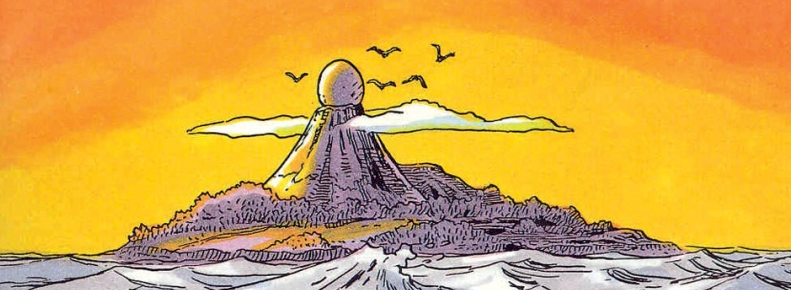
<voltar>

In today's attention economy, there is no lack of websites offering to provide you a nice and clean IV drip of dopamine, with no strings attached. Just pop over to your favorite social media website and you'll know what I mean: quick entertaining blurs that capture your attention just enough so you don't realize that the walls are caving in. A rush of information so great that you cease to be a person, and transcendentally becomes "another node in the network".
In this state of affairs, it requires an enormous amount of effort to focus on hobbies and personal projects -- specially if it is an activity for which we don't expect to receive any recognition in the short term, e.g. if we are beginners. It is only natural, then, that we end up avoiding these activities like the plague, associating them with a mixture of shame and guilt that culminates in a sad forgetfulness of these long-term goals. In other words, we want to want these things, but amidst the landscape of quick dopamine rushes, we stop actually wanting them.
To resist the devil-apps and tilt the balance in the favour of humanity, I share with you this tool which has been of enormous value to me: motivation stations.
A motivation station is a place where you collect things that make you want to do stuff. That's it. These can be quotes, posts, pages, videos, anything -- every time you see something that sparks joy in your heart and inspires you to do stuff, collect it like a goblin grabs a shiny rock, and save it in your station. "I'll be having that", you whisper. Then later, when you have some free time but are not "in the mood", go over your collection and imbibe again from these sources of vitality. If everything goes according to plan, you will get inspired and use your free time in a way that you consciously approve of, instead of folowing the path of least resistance -- which often means falling prey to social media. If it doesn't work and you remain unmotivated, well, at least you spent some time seeing stuff you like (which in my book, is also better than social media!).
To me, this simple tool has been wonderful for when I have to consciously create motivation -- that is, when I don't want something, but I want to want it. It's perfect for that lazy sunday morning when you wake up and rejoice at the potential of the full day ahead, but since no specific motivation captures your heart, your fingers start automatically opening Twitter without you commanding them to.
A personal example: I consciously want to write blog posts, but writing is hard, more so when you're not forced to do it, and when you aren't sure that anyone will read your words. So even though the rational side of me believes that it's a worthwhile activity, I instantly get demotivated when I sit down to write and start struggling at every paragraph. There are many ways to approach this problem of course, for instance reading about writing techniques that could make the process easier (I recommend Writing Without Teachers by Peter Elbow), but I've found that something very helpful is to just... read blog posts that I love! Most of the time, this allows me to recapture the lost motivation and remember why I wanted to write in the first place. It's like being totally lost at sea and then seeing an island appear behind the clouds: "oh, right, that's where I wanted to go". This is how the motivation station helps me.
I know that there is nothing revolutionary about this idea, and it is in fact quite simple, but I've not seen anyone call attention to this particular tool yet so I though it wouldn't hurt to write a few words about it.
Some additional thoughts:
Evidently, a motivation station is not tied to any particular technology, and it can be as simple as a plain text file. However, I found great success in using Notion: it allows you to "embed" previews of the pages, creating a smooth result that makes me excited to keep using it. I'll link to my station down below.
I suggest only collecting stuff that truly resonates with you. It's quite easy to turn the motivation station in a huge pile of links akin to a chaotic bookmark bar, however that's not our goal here -- we want precise strikes that will remind you of what you want to do. If the collection contains things that are only "mildly interesting", I find that I end up getting distracted instead of hyped.
It's always good to remember that as with any advice/technique, the true goal is for you to treat it as an experiment: apply it, watch how you react, and observe why it works/doesn't work for you. You may learn valuable lessons about yourself!
Finally, as promised, here is my own motivation station, if you're curious. As I've said, it's just a list of links, very simple -- the truly remarkable thing happens between the chair and the computer.